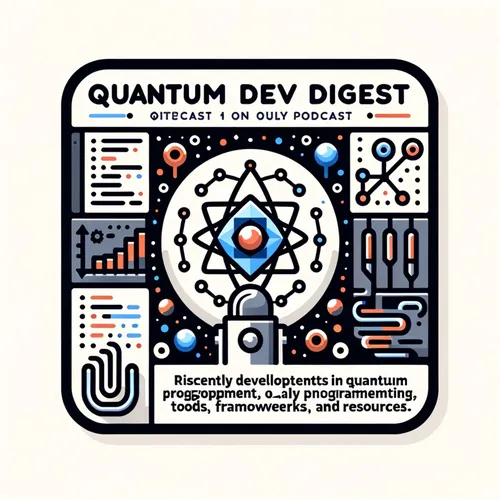Quantum Leaps: Terra's Error-Correcting Matrix Unleashes AI Potential
- Author
- Quiet. Please
- Published
- Fri 15 Aug 2025
- Episode Link
- https://www.spreaker.com/episode/quantum-leaps-terra-s-error-correcting-matrix-unleashes-ai-potential--67378578
This is your Quantum Dev Digest podcast.
In the humming heart of our quantum research suite, the air practically crackles. My name is Leo—Learning Enhanced Operator—and every quantum breakthrough feels like being the first to touch a sunrise. Today, I’m standing at the crossroads of history. Just hours ago, Terra Quantum, partnering with IBM hardware, unveiled a quantum error correction advance that’s been the talk of every lab and boardroom. If you imagine quantum computing as a symphony of entangled notes, then quantum error is that stubborn static threatening the melody. Terra Quantum’s Quantum Memory Matrix—or QMM—is now the world’s quietest conductor.
This breakthrough takes a concept inspired by quantum gravity, one of physics’ deepest mysteries, and translates it into a lightweight, plug-and-play layer for superconducting quantum processors. No added gates, no extra burden—the error correction simply rides along the logic, suppressing up to 35% of errors at the circuit level, without a single extra stabilizer measurement. Imagine your phone’s autocorrect catching typos invisibly—cleaning, not adding bulk or slowing you down. That’s QMM in action, validated on IBM processors, now ready for global deployment.
The analogy I often use is luggage. Picture you’re packing for a trip, squeezing essentials into a single suitcase, hoping it won’t burst or tip over. Now, imagine a quantum carry-on—smaller, lighter, but so cleverly built it compresses your wardrobe to fit perfectly, no matter the shape or bulk. QMM gives quantum circuits this resilience and flexibility, letting algorithms run smoother, error-free, without redesigning the hardware stack. For developers working on quantum machine learning, chemistry, or optimization, this means deeper, more expressive models, unlocking solutions that were just out of reach last week.
But let’s pull back for context—the last couple of days have seen cascades of quantum impact. Columbia Engineering's HyperQ has virtualized quantum resources for multiple users, Quantum chips from Google and new error-corrected processors from IBM hint at full-scale quantum systems within five years, with new hybrid classical-quantum architectures transforming logistics and finance. It’s as if, overnight, quantum machines have become multiverse explorers, charting uncharted territories in every field you can name.
What does this mean for everyday life? For a moment, picture traffic lights synchronized not by a timer, but by quantum logic—adapting instantly to flows of cars, buses, bikes. Or financial transactions, verified securely and confidentially, even if adversaries are armed with tomorrow’s supercomputers. This is why error correction matters: quantum power without reliability is like juggling lightning—spectacular, but risky unless you direct it precisely.
So, as the UN declares 2025 the International Year of Quantum Science, our field is sprinting from theory to reality, weaving quantum reliability into the fabric of industries and cities. All this, mostly unnoticed by passersby—but here, we know the quantum age is upon us.
Thank you for joining me, Leo, on Quantum Dev Digest. If you have questions, ideas, or wild quantum dreams to share, just email [email protected]. Don’t forget to subscribe to Quantum Dev Digest. This has been a Quiet Please Production. For more, check out quietplease.ai.
For more http://www.quietplease.ai
Get the best deals https://amzn.to/3ODvOta
